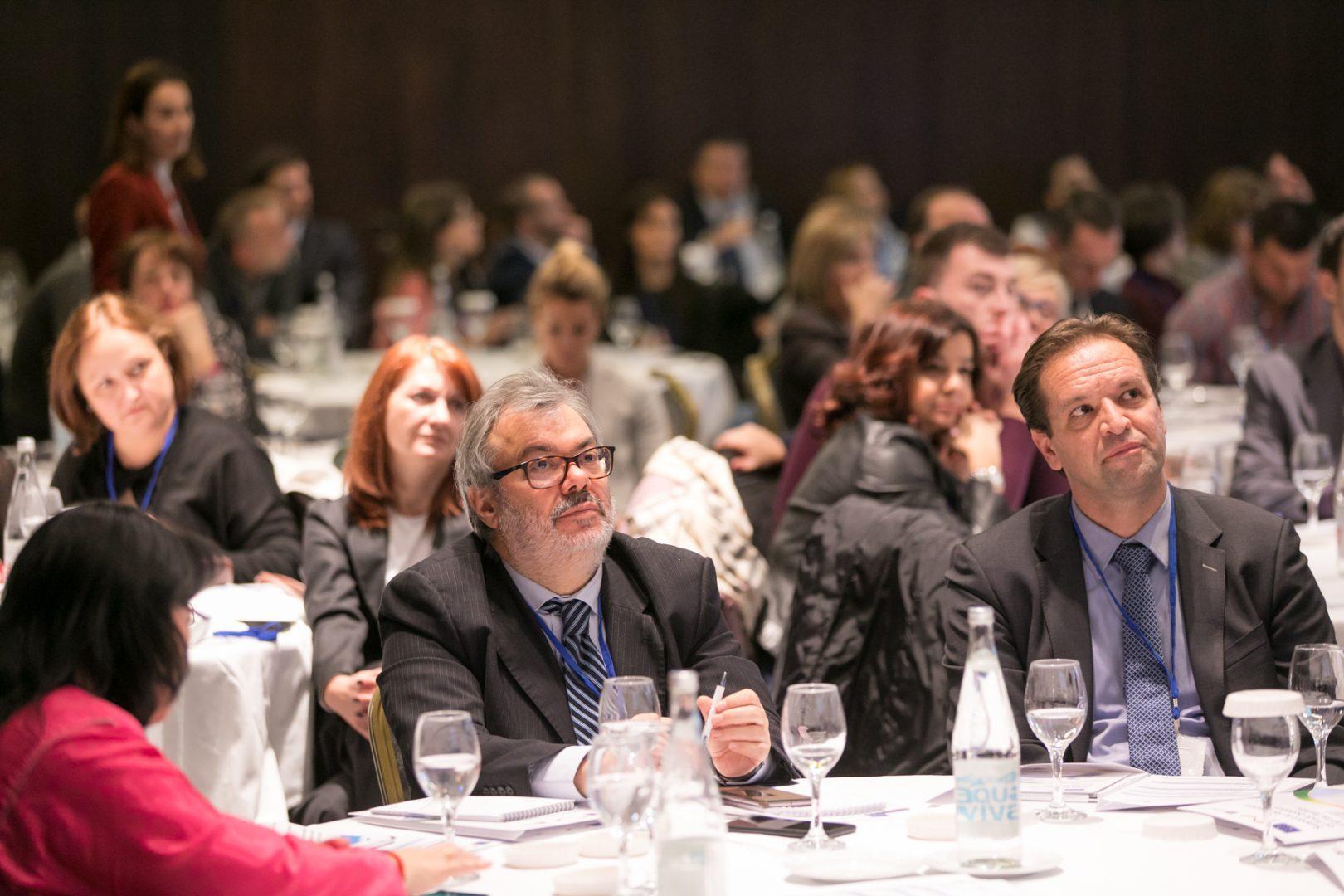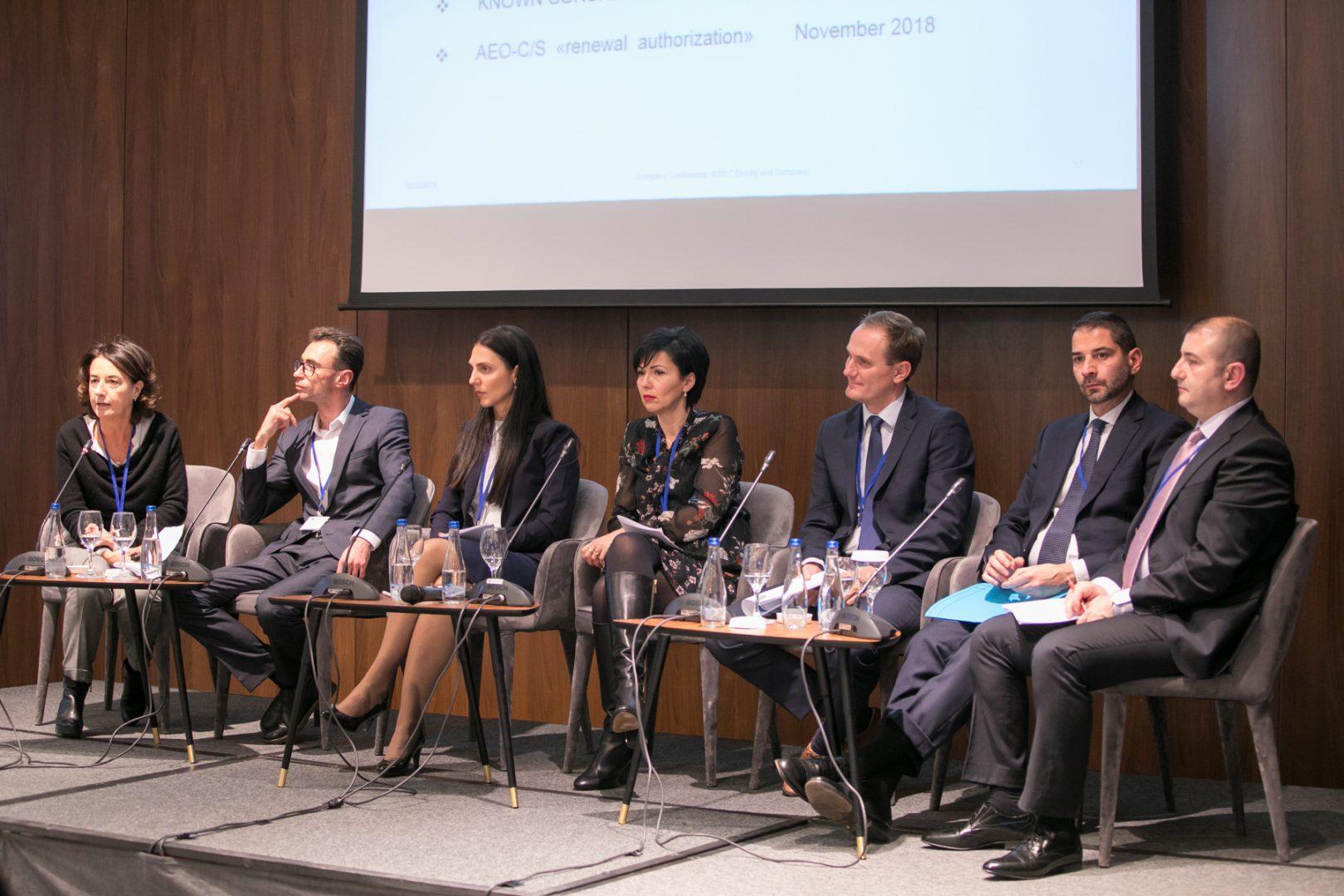Belgrade, December 13, 2018 – The application of the status of the Authorized Economic Operator (AEO) in the customs system currently held by 15 economic operators in Serbia had confirmed the positive experience of the European Union where 17,000 companies in 28 member states reap the benefits of this status. That was the conclusion of the introductory part of the two-day conference “Promotion of the Mutual AEO Recognition in the CEFTA context”. The regional AEO conference has begun this morning in the Metropol Palace Hotel in Belgrade, organized by the German Organisation for International Cooperation (GIZ) and funded by the European Commission and German Federal Ministry for Economic Cooperation and Development (BMZ).
Within the EU the term AEO status refers to the economic operator involved in the activities stipulated in the customs law which is reliable and as such has benefits across the Community. The European Union legislation recognises the AEO status since 2008 and economic operators with the AEO status are involved in over 77% of import and export in the EU. The AEO status was introduced to Serbia in 2014.
“Cooperation between the private and the public sector was crucial in the process of introducing the AEO status. It resulted in strengthening the mutual trust that consequently affects the economic development of the country and its integration in the international economic flows. The goal of this conference, as well as other activities we undertake, is to exchange the experience regarding practical aspects of acquiring the AEO status and the benefits it entails. In that way, we hope to encourage more companies to initiate the process of acquiring this status”, said Tanja Boskovic, Project Manager of the “Support to Facilitation of Trade between CEFTA Parties”, implemented by GIZ.

The main advantages provided by the AEO status, as stated at the conference, are reflected in the simplified and faster customs procedures the result of which are improved work processes and savings, both for companies and customs administrations. At the same time, the AEO status has a positive effect on a more stable operation of businesses, technological investments, voluntary compliance with safety regulations and improved quality standards of goods which enables the benefits important for the end users, i.e. the citizens. According to the Customs Administration’s assessment, the introduction of the AEO status, with application of simplified procedures, is one of the most important contributions to facilitation of companies’ operations.
The representatives of state institutions, the companies from Serbia, the region and the European Union with the AEO status as well as the representatives of the international organizations took part at the conference in the Metropol Palace Hotel.
The representatives of the Nelt company that was granted the AEO status in Serbia in 2017 said it brought them a series of benefits, some of which are: reduced period of transport, reduced costs and improved possibility to meet the clients’ demands. The representatives of the global company Piaggio Group explained to the participants at the event the specific steps in the process of acquiring the AEO status. They underlined how important it was for their business results to cooperate with the public sector and other organisations and work on expansion of mutual recognition of the AEO status in the countries they have commercial relations with.

The AEO programme was introduced by the USA, Japan, EU member states, Switzerland, Norway and China. The goal of the World Customs Organisation is to continue expanding this programme.
After the introduction of the AEO status, it is crucial for further economic development and strengthening of the trade cooperation between the countries in the region and EU approximation to have the mutual recognition of the AEO status between CEFTA Parties. With this in mind, a series of activities have been undertaken and they will be the focus of attention for the next period within the project “Support to Facilitation of Trade between CEFTA Parties”.







